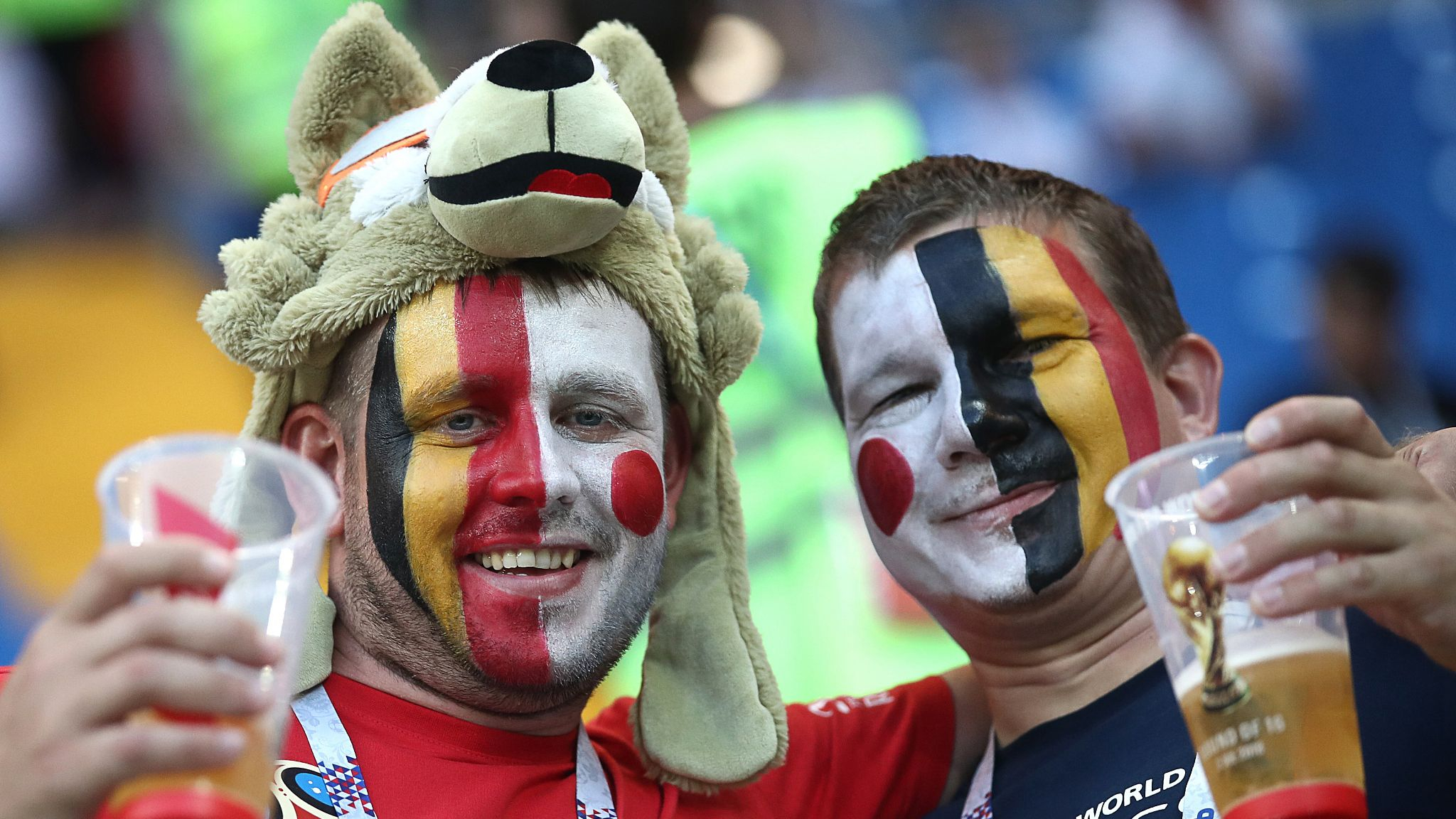The greatest football event came to an end when France defeated Croatia 4-2 to win the World Cup for the second time.
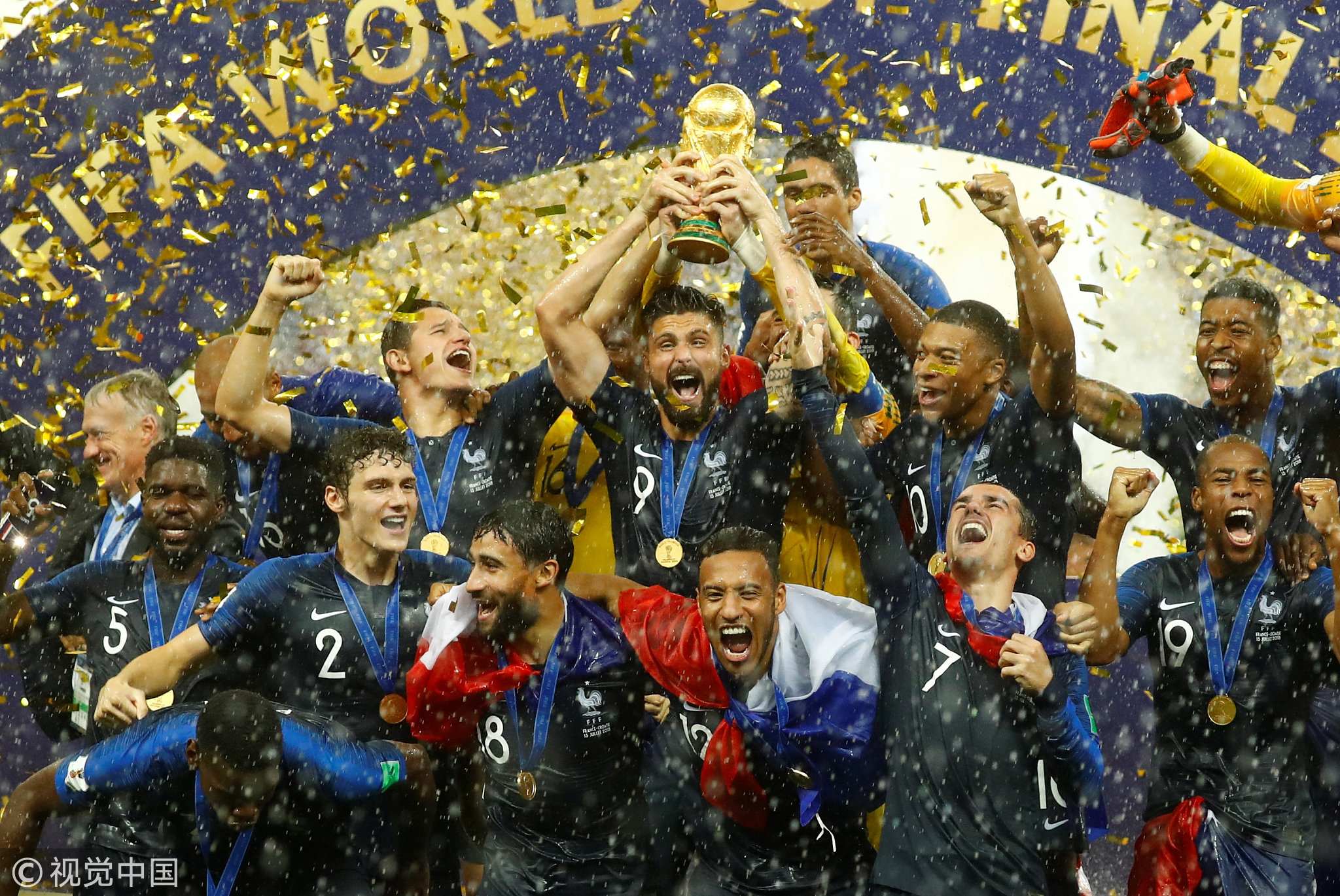
Olivier Giroud lifts the trophy as the French team celebrates after winning the World Cup on July 15, 2018. /VCG Photo
Olivier Giroud lifts the trophy as the French team celebrates after winning the World Cup on July 15, 2018. /VCG Photo
Looking back on a month of action, it’s hard to forget the amazing moments as fans with beers in hand, ecstatic or tearful, celebrated raucous victories or swallowed bitter pills at the games themselves or in front of big screens.
Thousands of fans guzzled so much beer that there was a temporary shortage in Russia.
So why are people so thirsty for beer during the World Cup?

A supporter of Team Colombia drinking beer ahead of the 2018 FIFA World Cup Round of 16 match between Colombia and England. /VCG Photo
A supporter of Team Colombia drinking beer ahead of the 2018 FIFA World Cup Round of 16 match between Colombia and England. /VCG Photo
The answer may date back to the earlier history of the tournament.
Germany and England were both beer lovers who first brought the tradition of drinking beer to the World Cup. However, it was Liverpool that is credited with making beer really popular among football fans.
In 1884, a brewer John Holding in Liverpool built a new stadium for Everton Football Club, and he also turned his brewery into a giant open-air beer house, where beer sales were a major source of profit. After that, he hired a football team from Scotland for his customers, which later became Liverpool Football Club as people know today.
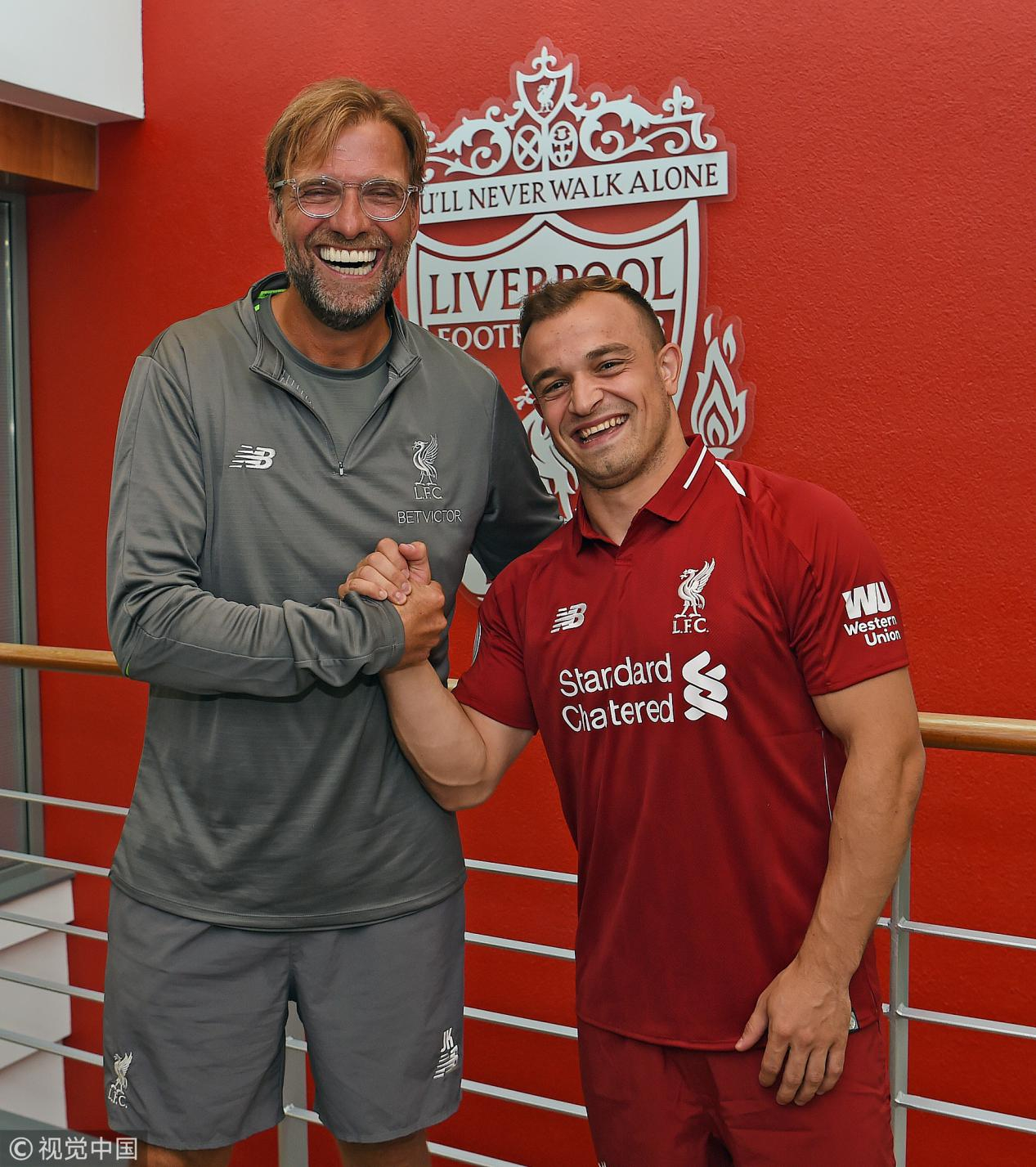
Xherdan Shaqiri with his new boss Jurgen Klopp, manager of Liverpool, after signing for the English Premier League side at Melwood Training Ground on July 13, 2018, in Liverpool, England. /VCG Photo
Xherdan Shaqiri with his new boss Jurgen Klopp, manager of Liverpool, after signing for the English Premier League side at Melwood Training Ground on July 13, 2018, in Liverpool, England. /VCG Photo
Since then, the team set off a trend of drinking beer while watching football in Britain.
There is another factor accounting for the link between beer and football: The brewers sponsored all kinds of football events. In 1954, the World Cup was held in Switzerland, and Germany unexpectedly defeated Hungary, which was recognized as the golden dynasty at that time, in the final. The triumph not only made German stout worldwide popular but promoted the development of the entire German economy after the Second World War.
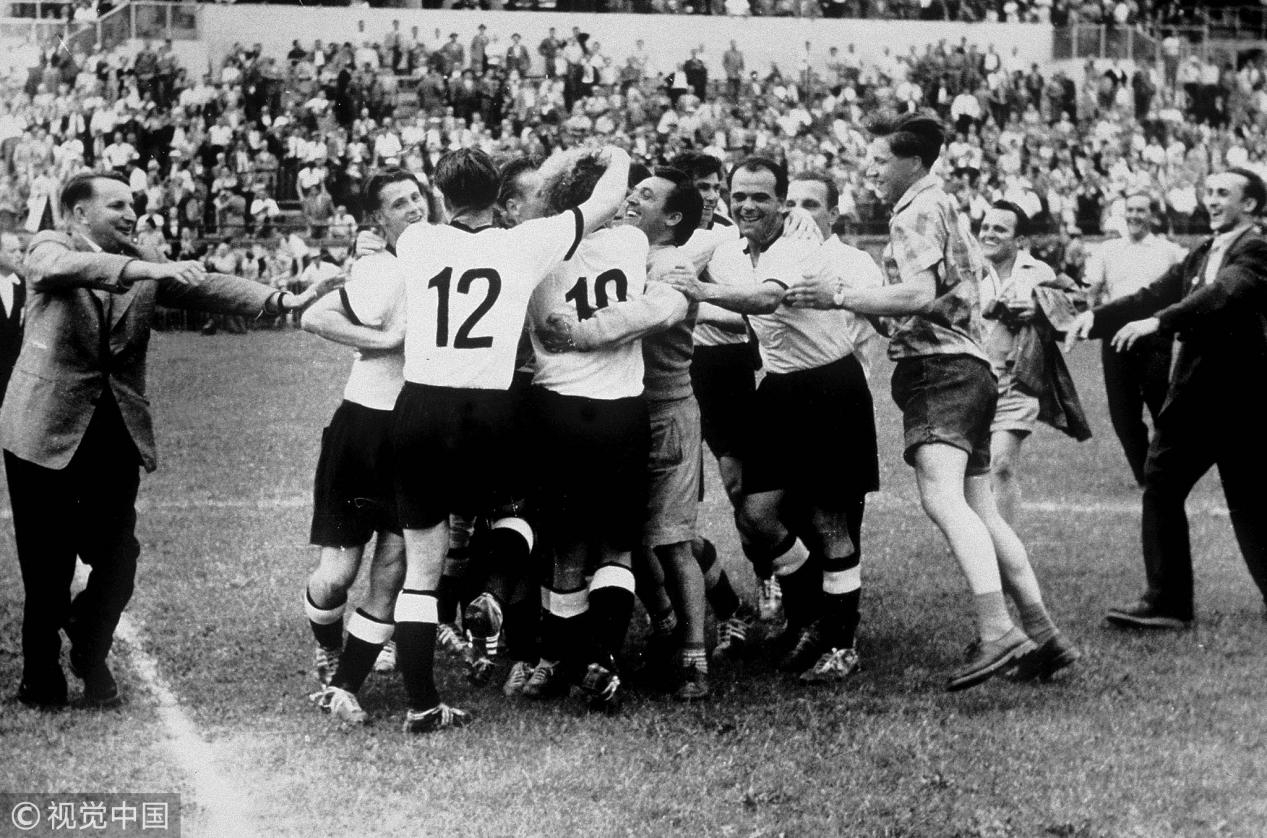
The German team celebrate after winning the FIFA World Cup 1954 final match between Hungary and Germany. /VCG Photo
The German team celebrate after winning the FIFA World Cup 1954 final match between Hungary and Germany. /VCG Photo
Besides Germany, Belgium is famous for its beer as well. It is well known that Belgian teams became known as the "red devils" in the 1960s for their outstanding performances and that their fans were attracted to the sponsor's beer. It can be said that the football matches of the 1960s and 1970s promoted the high-quality beer in Europe to the world.
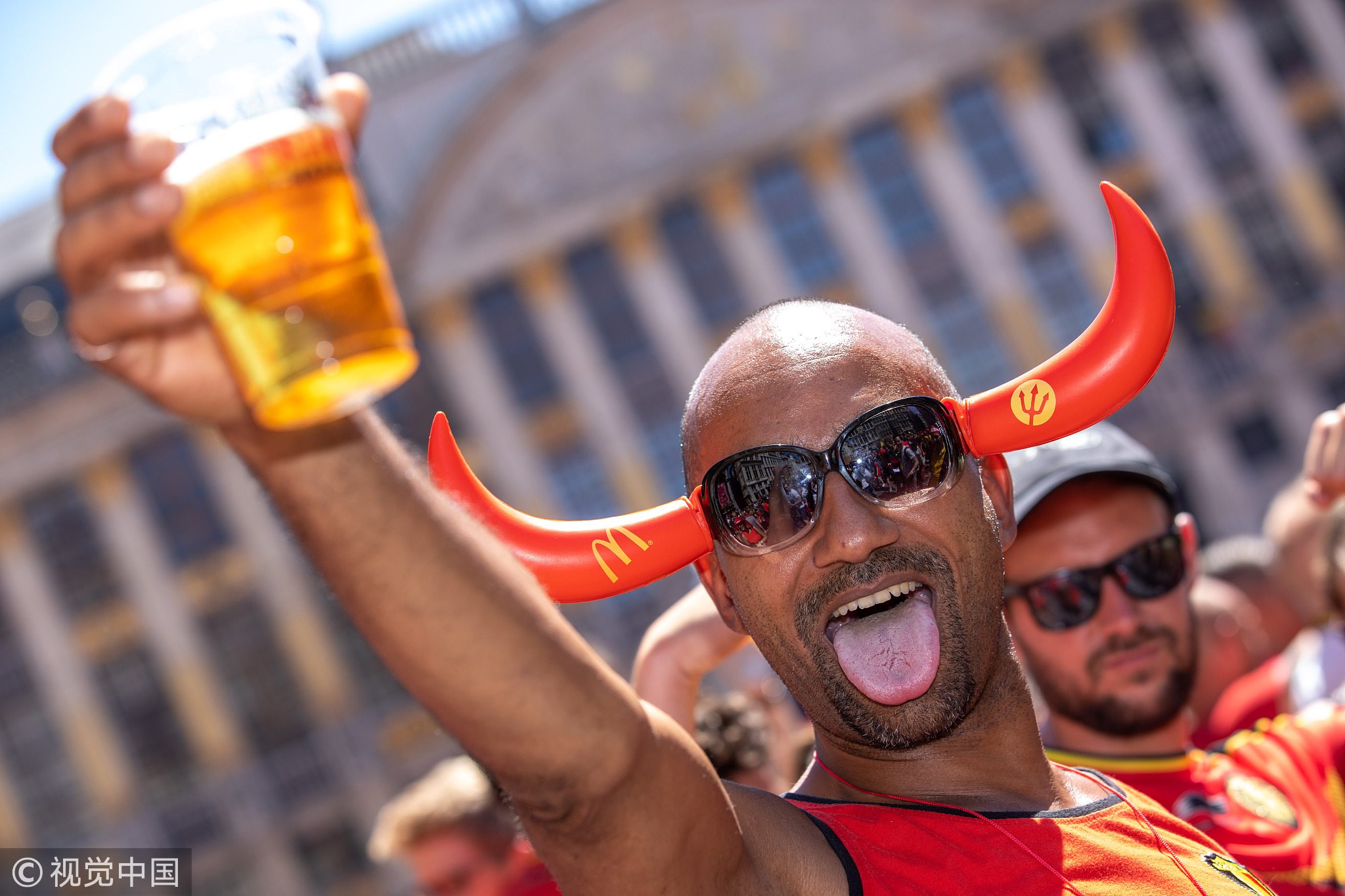
Fans cheer during the Red Devils Parade in Brussels after the Belgium team returned from Russia on July 15, 2018. /VCG Photo
Fans cheer during the Red Devils Parade in Brussels after the Belgium team returned from Russia on July 15, 2018. /VCG Photo

